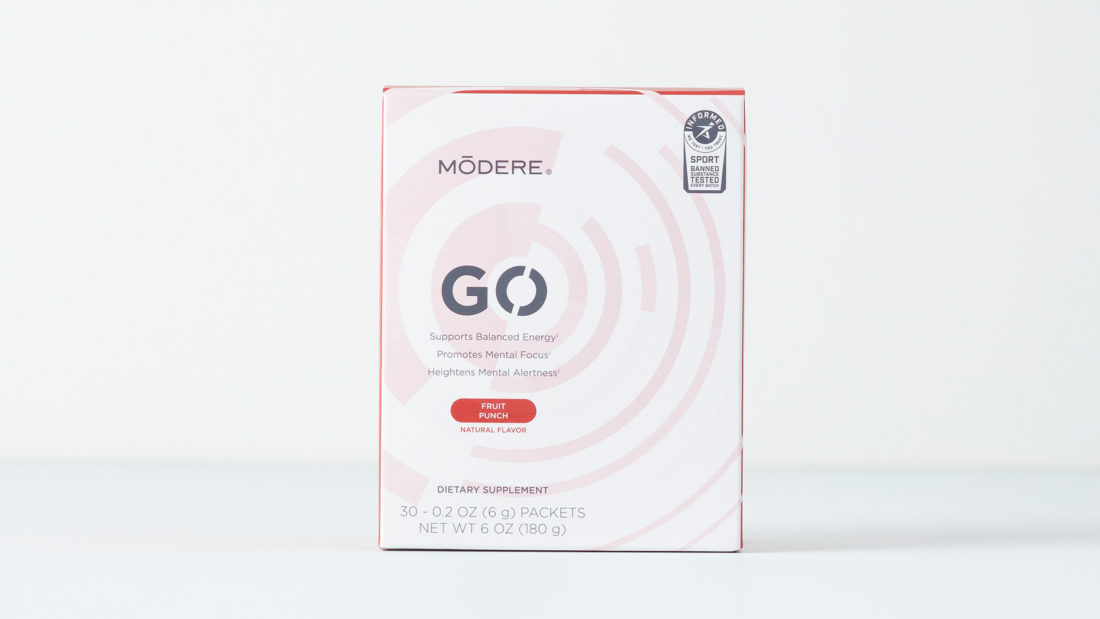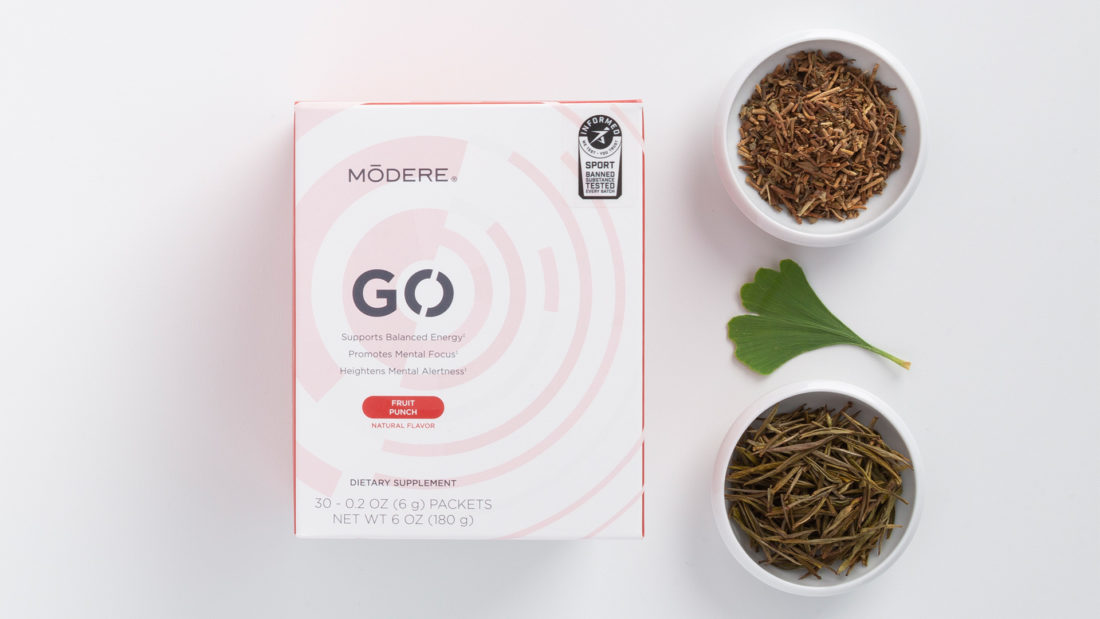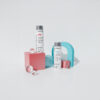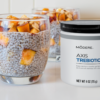You know those days when you just can’t seem to pull your thoughts together or find the mental energy to tackle that big project. Yeah, we hate those days too. Now think about when you’re in the flow and crushing your to-do list. Would it surprise you to learn that neuroscience says you could have more of those days? A lot more. And all it takes are a few simple things that anyone can do.1,2,3
6 Simple Ways to Improve Your Mental Clarity
If you’re looking to optimize your cognitive function, start with the basics:
- Get enough sleep – You’ve probably noticed that when you don’t get enough sleep, you suffer from brain fog. And people who consistently skimp on sleep tend to experience greater cognitive decline as they age. To help keep your mind sharp, shoot for 7-8 hours of sleep each night.4,5,6 Research also shows that a quick nap can sometimes help with recall more than additional studying.7
- Exercise – Physical activity is just as important for your mind as it is for your body. It provides the brain with nutrient- and oxygen-rich blood, which aids memory, attention and problem-solving.8,9 Some research even shows that it can increase hippocampal volume, leading to an improvement in spatial memory.10 And pretty much all exercise helps, from sprints or weights to bouncing a ball or going for a walk, so choose what works best for you.
- Deal with stress – Persistent stress has been shown to negatively impact memory, so finding a healthy way to deal with it is crucial.11 Some of the best strategies are exercise, sleep and eating well, which will support your memory too.
- Be social – Many studies have found that those who maintain strong, positive social relationships experience significantly less cognitive decline as they grow older.12,13 In fact, for some older people, maintaining quality relationships helped them to sustain the same cognitive performance as other adults half their age.14
- Eating healthy – The brain accounts for about 20% of your body’s energy consumption and keeping it properly nourished is essential to optimal function.15 Eating right is strongly correlated with better cognitive performance. Specifically, eating berries like strawberries and blueberries is associated with cognitive health, and so is the consumption of green vegetables.16,17 Sounds like your parents were right all along.
PRO TIP: If you want to take eating healthy to the next level, the Mediterranean diet and a modified version called the MIND diet are shown to significantly help maintain brain health.18
- Challenge your mind – It’s important to exercise your mind. This could be learning a new instrument or language, building something, playing games like chess or doing crossword puzzles. Older adults who took up new hobbies or participated in brain training courses experienced improved cognitive performance, even years later.19,20,21
The Most Overlooked Step in Brain Health – Supplementing With a Nootropic
A healthier lifestyle can definitely help promote better cognitive health, but to truly be at the top of your game, you may benefit from targeted nutrition in the form of a brain-nourishing nootropic supplement.22 That’s because the right nootropic provides a cognitive bonus, improving your mental performance whatever your age. An effective nootropic can:
- Boost cognitive performance
- Enhance focus
- Aid memory
- Support mental alertness and energy
- Help you get more done
- Help maintain your brain as you age
That’s the kind of boost everyone could use because we all struggle with distractions and have times when we feel tired or foggy. A quality, clean label nootropic helps you fight back, so you can stay sharp and get more done each day, whether at work or at home. Or if you want a competitive advantage to help you excel at school or get ahead in your career, the right nootropics can help you think more clearly, learn more quickly and perform your best.
What Are Nootropics?
The word nootropic was first used in 1972 by Dr. Corneliu E. Giurgea, a Romanian neuroscientist who discovered a way to make a synthetic derivative of the neurotransmitter GABA.23 Today, the term nootropic is used to describe any natural extract or synthetic compound that promotes cognitive function such as memory, concentration, creativity and healthy brain aging.
And whether you realize it or not, you’re probably already taking a nootropic every day in the form of caffeine. It’s widely used across the world in coffee, tea and energy drinks as a pick-me-up to help with alertness and focus. But caffeine is just one small piece of the puzzle. They are many other brain-boosting ingredients that you’re missing out on because the only way to add many of them to your diet is through a nootropic supplement.
How Do They Work?
Nootropics work by facilitating the transmission of information in the brain, which enhances mental performance. They achieve this by supporting a variety of physiological functions. Some work in a similar fashion to exercise, improving the brain’s blood flow, which results in more oxygen and nutrition reaching the brain. Others aid a normal inflammatory response, support neurotransmitter levels or even help tune your brain waves.24
How to Choose a Nootropic
Like most nutritional supplements, there are countless nootropic options to choose from, but not all of them will deliver on the benefits they claim. Here’s what to look for in an effective nootropic.
- Science-backed claims – You want a formula designed by experts relying on clinical research, so you know it’s both safe and effective.
- Complete formula that meets all your needs – Most energy drinks and cognitive support products just pick a couple of generic ingredients, like taurine or vitamin B12, and add some synthetic caffeine. That simplistic approach may aid alertness, but to perform your best, you need a formula designed to meet your full range of cognitive needs.
- Natural caffeine – A clean label formula will use plant-based caffeine.
- Synergistic ingredients – Some ingredients have been shown to work better together, like L-theanine and natural caffeine. They work fine on their own, but when paired they provide energy and calm, effective focus without any jitters.
- Easy to add to your daily routine – Choose a nootropic that’s convenient to use, because it won’t do you any good sitting on the shelf.
Modere GO – The Science-Backed Nootropic

If you’re looking for a science-backed nootropic supplement that ticks all the boxes and more, try Modere GO. It’s a category-leading formula that offers broad-spectrum benefits to meet your cognitive needs with advanced ingredients and proven botanicals.
- Holistic, biohacking approach
- Research-based formula
- Clean label formula
- 8 proven nootropic ingredients
- 16 brain-boosting vitamins and minerals
- Natural caffeine from green tea
- Informed Sport Certified
- Convenient
- 3 delicious flavors

Modern research shows that some of the best nootropic ingredients are those that people have been using to support cognitive function for thousands of years, like bacopa, ginkgo and shatavari.25
Bacopa plant – a traditional Ayurvedic herb that supports improved cognitive function and memory.26*
Ginkgo leaves – used for centuries in China as a nootropic, and modern research shows it can aid memory and mental processing.*
Shatavari root – a traditional ayurvedic herb renowned for its neuroprotective and cognition-enhancing properties.*
But Modere GO doesn’t stop there. It’s formulated with cutting-edge ingredients backed by scientific research, including alpha-GPC, acetyl-L-carnitine and L-5-methyltetrahydrofolate.
Alpha-GPC – a precursor to one of the most abundant neurotransmitters in the brain, which is vital to memory, attention and cognitive function.*
Acetyl-L-carnitine – an advanced form of the amino acid carnitine that’s shown to support cellular energy production, as well as alertness and memory.*
L-5-methyltetrahydrofolate – a more bioavailable form of the essential vitamin folate, which is required for your body to make multiple neurotransmitters, including dopamine and serotonin.
Our carefully selected nootropic ingredients work synergistically, providing a potent, clean label formula you can trust to help you achieve peak mental performance every day.*
- Promotes balanced energy*
- Boosts mental focus and alertness*
- Supports healthy cognitive function*
- Assists memory, learning and mental clarity*
- Increases alpha waves for a mindful state of zen-like concentration*
- Check more off your to-do list, so you have time for what matters most*

Experience Better Cognition With a Better Nootropic
We could all use a boost to our cognitive function. Whether it’s fighting fatigue, brain fog, or distractions, choosing the right nootropic supplement can make a significant difference, both at home and at the office. Modere GO optimizes your energy and boosts your mental performance so you can think clearer, learn faster and remember more, giving you the cognitive edge you need to perform your best and get more done each and every day.*
Informed Sport is an internationally recognized certification that ensures the product has passed the most stringent sports supplement testing and is free of prohibited substances.
*These statements have not been evaluated by the Food and Drug Administration. This product is not intended to diagnose, treat, cure or prevent any disease.
References
2 https://www.hss.edu/playbook/six-ways-to-boost-your-brain-health/
3 https://www.medicalnewstoday.com/articles/326379#summary
4 https://academic.oup.com/brain/article/140/8/2104/3933862?login=false
5 https://www.science.org/doi/10.1126/science.1241224
6 https://www.ncbi.nlm.nih.gov/pmc/articles/PMC3413705/
7 https://pubmed.ncbi.nlm.nih.gov/30371902/
8 https://www.ncbi.nlm.nih.gov/pmc/articles/PMC5091051/
9 https://pubmed.ncbi.nlm.nih.gov/32342466/
10 https://www.pnas.org/doi/abs/10.1073/pnas.1015950108
12 https://pubmed.ncbi.nlm.nih.gov/30452410/
13 https://www.ncbi.nlm.nih.gov/pmc/articles/PMC5102822/
14 https://journals.plos.org/plosone/article?id=10.1371/journal.pone.0186413
15 https://pubmed.ncbi.nlm.nih.gov/25996133/
16 https://www.ncbi.nlm.nih.gov/pmc/articles/PMC3582325/
17 https://n.neurology.org/content/90/3/e214
18 https://www.ncbi.nlm.nih.gov/pmc/articles/PMC4532650/
19 https://www.ncbi.nlm.nih.gov/pmc/articles/PMC5569993/
20 https://journals.sagepub.com/doi/abs/10.1177/0956797613499592?papetoc=
21 https://www.ncbi.nlm.nih.gov/pmc/articles/PMC4055506/
22 https://www.ncbi.nlm.nih.gov/pmc/articles/PMC5260335/
23 https://en.wikipedia.org/wiki/Corneliu_E._Giurgea
24 https://www.sciencedirect.com/topics/neuroscience/nootropic








